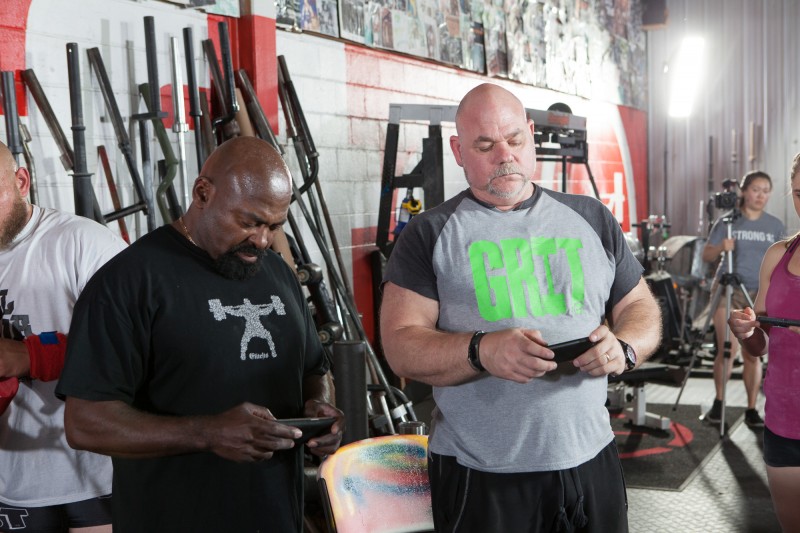
For some, this may be just common sense. But as Voltaire said in 1764, common sense is not so common. We have to realize that everything we put out on social media is there forever. Recently, I have noticed three trends in what people post:
- "This other person is an idiot."
- "My boss is an idiot and I’m smart."
- "My athletes don’t work hard. It’s not my program that’s the problem."
In the future I want you to stop, think, count to 10, re-read what you are about to post, and then think if it’s a good idea. Realize that you have no context for what the other person said, did, or posted, and that everything you say can be seen. Let's go each of the three scenarios above.
"This other person is an idiot."
There are a few reasons why people post like this. The most common posts like this come against someone who is well established in the industry. It seems to be that the most common way of getting attention is to say the complete opposite of what someone who is an expert says. It’s the, “Hey, they’re an idiot and I’m the genius here. Listen to me.” Maybe it’s true that you have some insight into an area that they didn’t or don’t have. Maybe you are completely mistaken about what they tried to say in 140 characters. Maybe you are taking a tweet that someone else is quoting them on completely out of context.
LISTEN: All Things Strength & Wellness Episode 112 with Dr. Bryan Mann
How many times have we seen someone come along and do this only to disappear shortly after? They often made a grandstanding gesture to get their 15 minutes of fame and then were never heard of again. If you’re trying to be famous for 15 minutes, go for it. You’ll be a twitter sensation for a short time and then never heard of again.
I do want to point out something that goes along with this: What you say about people can be seen by anyone and, in particular, seen by the individuals you're talking about. I remember when I was quoted at a conference and some people on Twitter didn’t like what I said. One person had some awful things to say about the topic and myself. I saw it. The world saw it. Then I got an email from the person asking me a question later about something completely unrelated. I recognized the name from the tweet, and sent him a screenshot of it and asked him, “Why are you coming to me for answers when you think this of me?” Needless to say, I didn’t get an answer. Realize that for 50 likes on a tweet, you may lose friends, allies, and contacts in real life.
"My boss is an idiot and I’m brilliant."
People love to talk about how stupid their boss is and say that he shouldn’t have his job and that they, as the intern, have the answers. Let’s address this by pointing out a few things.
Do you know why your boss did it?
Without context, it’s often that people will make mistakes on what the purpose of something is. Recently at the MU Human Performance Institute, we were doing intern programs. We had an intern that was going over a program for the tactical population, and I was just sitting there thinking that the design of one of the training days in his program was worthless. He then went on to talk about how this would be the main tool available to them on deployment, and it hit me that it was invaluable for them to learn how to use this tool now so that later they could maintain physical condition in the field of battle during deployment. I went from being against the use of the tool to for it with some context.
It is often like this. I remember having an intern who thought I didn’t know what I was doing because I didn’t do cleans and snatches with my teams. He came from the private sector with two-hour blocks, while I had 40 minutes for a weight training session at the longest point in the year. We did a lot of loaded and unloaded jumps, plyometrics, and pulls, and 18 out of 20 of the ladies had a greater than 20-inch vertical jump. I didn’t skip the full lifts with them because I was stupid; I skipped the full lifts with them because I had no time and I felt that I could get more from other areas. If he would have asked me about this rather than deciding to talk to others about this, I would think otherwise about him.
Did you ask your boss about it?
He may have just blown you off, and fine, you’re upset about it. It may be possible that your boss tried doing this exact thought in the past and it didn’t work out at all. Maybe it didn’t work out because of logistics; maybe it didn’t work out because it didn’t produce results. But either way, it didn’t work out for him. Maybe taking some more diligence and asking them at a different time why things didn’t work would be the better route to go. Sometimes it may be on you to find some time to sit down with the boss or someone else on staff and ask questions about something. Don't present it as, "Tell me why I’m wrong,” because you are going to sound like an entitled individual who has no perspective. Approach it as someone who is trying to find out why another person is doing what they’re doing. Often times, when you ask why and get down to it, you may find that you like—or at least understand and respect—what they did and why they did it.
Your boss can see what you wrote.
Your boss has friends and contacts on social media even if he isn’t on it. If your boss’s friends see what you wrote after you went around bragging about how you’re working at their school and now you’re whining about them, do you think your boss’s friends might not send them a screenshot of what you said? Or is it also possible that the other staff members might see it and pass it on? While this sounds stupid, I can tell you it has happened many times.
You look like a whiny punk.
I can tell you this: I have muted or blocked many people on social media because all they ever do is complain about work conditions. No one wants to see it. No one wants to hear it. I remember someone once saying, “99% of the world has their own problems, and the other one percent doesn’t give a rip about yours.” So, if you’re on social media just to complain all of the time, stop.
"My athlete’s don’t work hard. They’re the problem. It’s not my program."
Really? Last time I checked, a coach is supposed to be someone who is motivational. If your athletes don’t work hard then it’s your fault. You need to find a way to motivate them in a different manner. Explore different options in motivation and see what works for you and your team. You’ll have to realize that different teams will need different styles of coaching.
I remember once having three teams that required very different styles. For one team I had to be an intense, in-your-face style of coach. Another team responded best to a Mr. Positivity, upbeat cheerleader. The third team responded best to a laid back, cerebral style of coach. If I went with the laid back and cerebral style of coach to the team that needed the intense person, I wouldn’t get taken seriously. If I went with the intense coach to the group that needed Mr. Positivity, they would all be fearful of what would happen next. In my 19 years in this profession, I have found one thing that rings true: a well-coached program will beat a well-written program any day of the week. If it is your athletes who aren’t working hard, look in the mirror, because YOU are the problem.
Also, another point here: your athletes are on social media and if they don’t follow you then they’re at least checking your account periodically.
If you say something like this about your athletes, then guess what? They will quit on you. I don’t blame them at all for this. This is human nature, and you as a coach failed them. If you did do this, there is only one solution: own up to it, apologize, and try to make things right between you and them. As much as I love exercise science, we have to remember that coaching is a human endeavor. If the athletes don’t trust you, they won’t work for you. If you have violated that trust, it is hard to get back. I don’t envy your situation.
Context
When it comes to context, you often have none. You see a snapshot of one slide that someone posted or one picture of an activity. If an entire 60-minute lecture could be summated into one slide or picture then that was indeed a very focused topic. However, I highly doubt that this is possible. One slide sets up the next, every statement builds on the previous and to the next one. If you take one slide and determine that is the entirety of what the speaker or person is about, you are sorely mistaken.
RELATED: Fitness Professional vs. Fitness Personality: The Social Media Conundrum
Some things that I think appropriate for one sport may not be for another. What is appropriate for early off-season may not be appropriate for pre-season, in-season, or even post-season. You don’t understand everything from one picture, no matter how damning or encouraging it may seem. You may have this fully stocked argument or nasty email written up to send the person, or maybe you did send it and then came to find out there was a misunderstanding.
How many times has this happened? I was once ready to rip the head off the owner of a technology company for something that they had said about me in an email. I thought that maybe I was taking things out of context, so I reached out to the person and I’m glad I did. They explained their position and I completely understood—and in fact agreed—with what they had said. While we don’t work together, we have a great mutual respect and understanding for what the other person does as a result of this. If I would have just exploded, things would not have ended up the way that they have.
Social media can be a very powerful tool to enhance your learning and your network, but you have to use it with some responsibility. I could go on and on, but something that just popped into my head was the one rule for our track team under Dr. Rick McGuire: always do the right thing. This entire article and rant could simply boil down to this. Always do the right thing. If you are doubting if you should do something or questioning how it might be perceived, don’t do it. Stop, count to 10, walk away, and come back and re-read it. Maybe send it to someone else before you post it. Several friends and I do this for each other often; we send something to each other and don’t post anything without approval from the others. This has saved me a lot of headaches and repercussions because of two things: I get their unemotional input and I get time to step away from it and come back.
I often end my articles with a Strong(er) of mind closing, but I don’t think that applies this time. I think it’s best to say that this is the end of the rant — at least for now.












